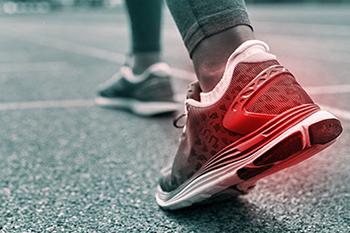
Selecting the appropriate running shoes is critical for enhancing performance and preventing injuries. For road running, lightweight shoes with ample cushioning and support are ideal to handle the repetitive impact on hard surfaces. Trail running requires shoes with rugged outsoles and enhanced grip to navigate uneven terrain and provide stability. For those focused on speed and competition, racing flats offer a lightweight design that maximizes speed and responsiveness. Cross-training shoes are versatile, offering stability and support for various workouts, including running on multiple surfaces. Minimalist shoes, designed to mimic barefoot running, promote natural foot movement and can strengthen foot muscles over time. Each type of shoe caters to specific needs and running conditions, making it essential to choose the right pair for your running style and goals. If you have endured a foot injury from wearing the wrong type of shoes, it is suggested that you visit a podiatrist who can offer you relief options, in addition to discussing what type of shoes best fit your running needs.
If you are a runner, wearing the right running shoe is essential. For more information, contact Stephanie Oexeman, DPM from Oexeman Foot and Ankle, PLLC. our doctor can provide the care you need to keep you pain-free and on your feet.
Choosing the Right Running Shoe for Your Foot Type
To increase performance and avoid the risk of injury, it is important to choose the right running shoe based on your foot type. The general design of running shoes revolves around pronation, which is how the ankle rolls from outside to inside when the foot strikes the ground.
- Neutral runners are able to choose from a wide variety of shoes, including minimalist shoes or even going barefoot.
- Runners who overpronate, or experience an over-abundance of ankle rolling, should choose shoes that provide extra motion control and stability.
- Runners who underpronate, or supinate, have feet that have high arches and lack flexibility, preventing shock absorption. They require shoes with more flexibility and cushion.
If you have any questions please feel free to contact our office located in Chicago, IL . We offer the newest diagnostic and treatment technologies for all your foot and ankle needs.
